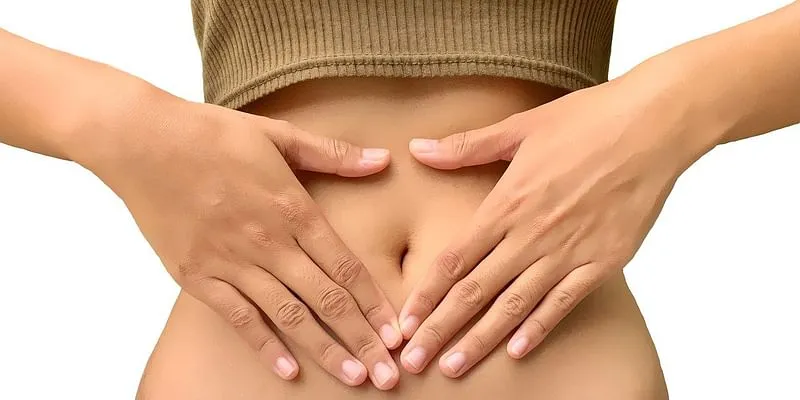Five ways to improve your gut health
An unhealthy gut has an impact on our overall health. Poor digestion causes build-up of metabolic waste, and this accumulation of toxins from poor digestion leads to diseases.
Gut health is at the core of all health. If we look through functional medicine or ayurveda, we come to this very same conclusion. Ayurveda has always spoken about how the state of agni is at the core of the disease development process. This is because poor digestion causes build-up of metabolic waste, and this accumulation of toxins from ajeerna, or poor digestion, leads to disease.
In functional medicine, the last decade has been the age of the microbiome, where extensive research into understanding the power of the gut, and the subsequent development of gut centric protocols and nutrients has been at the forefront.
Signs of a healthy gut
How do you know that you have a healthy gut? The most common mistake that you can make is to assume that you do not have problems with your digestive system, simply because you do not have symptoms of digestive distress. This assumption is at the core of why you may tend to overlook this critical issue. This can lead to a palliative approach with other symptoms.

Source: Pixabay
ALSO READ

Before we look at the signs of a healthy gut, your first takeaway from this should be that your gut always needs some support, especially if you have any symptoms which exist anywhere in the body. So, what are the signs that you have a healthy gut?
- The first sign of a healthy gut is healthy appetite, digestion, and elimination. We are generally meant to have three meals a day and needing to eat frequently is a sign that the gut is not healthy. Having excess appetite or poor appetite where we feel no hunger at the time of the next meal several hours later is a sign of an unhealthy gut. A healthy gut shows up as having a little reminder of hunger close to the next meal. Eliminating regularly and having anywhere between one to three eliminations in 24 hours is a sign of a healthy gut.
- Having stable energy through the day is a sign that our gut is healthy, and therefore we are metabolising and absorbing nutrients as we consume them. When energy does not crash and spike through the day, and is consistent most of the time, our gut is healthy. It is not normal to have a crash at a particular time of the day, and that usually points to a poor-quality diet and an unhealthy gut.
Our gut and the state of digestion is responsible for the regulation of body temperature. Feeling unusually hot or unbearable cold is usually linked to hormones, but the hormone behavior begins with the health of the gut. A healthy gut allows your body to better regulate temperature, acclimatising with the temperature of your season and location.
- A healthy gut means that you will have radiant and glowing skin. Frequent acne, rashes, and any skin condition should never be treated with topical antibiotics and steroids, and especially not if the gut is unhealthy. Oral antibiotics will only further disrupt the health of the gut.
- A great sign of a healthy gut is having great sleep. The ability to fall asleep easily, sleep for 8-9 hours, and have great quality of sleep where you move through all the stages of sleep, are very much linked to the health of the gut.
5 ways you can have a healthy gut
The good news about a healthy gut is that you can do so much yourself. The starting point need not be complex gut testing, enzymes, and digestive supplements. It should be about cleaning up basis cooking and eating practices. This is the missing link today. So much can be restored by us, at home, with no help. What are these basic practices?
. The first step is to avoid eating too many meals. Ayurveda looks at six stages of digestion which can take six hours. You might even feel hungry in two hours when the digestive process leaves the stomach, but this is not true hunger.
There is something called the migrating moor complex, which are these waves of peristalsis that moves toxins through the gastrointestinal tract every 90 minutes or so. It requires a break from eating for 4-5 hours to work efficiently. Having a 4–5-hour gap between meals is ideal. Eating small meals every two hours can disrupt this mechanism.
- Avoid drinking cold beverages, especially with your meals. A common practice is to have sodas with heavy meals. All beverages have the element of water, and they do put out the fire of healthy digestion. Cold water constricts the blood vessels of the gut, and anything that constricts means there is poor blood supply, and therefore, suboptimal function.
- Sit to eat when you are peaceful. Eating your meal after an argument or a high stress meeting is disruptive. While I am sure you will be aware of this age-old wisdom, think about when you might have missed practicing this due to a busy day. It happens to all of us. Taking some time to pause, calm down, take a few deep breaths, and eat without distraction is the best way to optimize gut function.
- Eat wholesome meals without the meals being predominantly watery. Smoothies that drive the busy world are not meant to be full meals. It goes back to the element of water and fire. The watery meals can weaken the gut. Eating balanced meals which are cooked, warm, and wholesome support a healthy gut.

- Cook with the right fats to stoke that fire. Ghee is a healthy fat that has so many wonderful properties. It is tridoshic, which means that it is great for all body constitutions. It kindles the fire and helps it to burn bright. Optimal digestion means less accumulation of metabolic toxins and therefore, less disease. Poor quality fats that are processed can be detrimental. Good quality fats are proven even by research to feed a healthy and diverse microbiome, which ultimately is the way towards a healthy gut.
A healthy gut is the way to vibrant living. Make these basic practices a part of your life today, and observe as any symptoms start to get less obvious, and eventually go away.
Edited by Megha Reddy
(Disclaimer: The views and opinions expressed in this article are those of the author and do not necessarily reflect the views of YourStory.)







